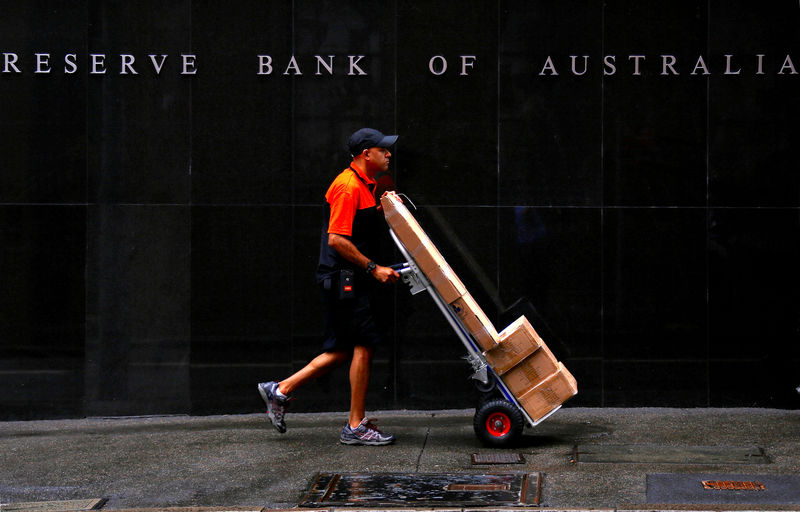By Swati Pandey
SYDNEY (Reuters) - Australians have a choice between tax cuts and greater public spending when they vote in a general election on Saturday, the starkest distinction in economic policy in years from the two main political parties.
Whoever prevails will face an economy likely growing at its slowest pace in a decade while the jobless rate has crept higher and could prompt the central bank to cut interest rates for the first time since 2016.
"Regardless of who wins the election ... the broader fiscal stance is mildly contractionary," said RBC chief economist Su-Lin Ong.
Many experts argue a more stimulatory fiscal response could, in fact, prove a salve for the limping economy. Reserve Bank of Australia (RBA) officials have also stressed the importance of fiscal stimulus to boost growth and consumer confidence.
The A$1.9 trillion ($1.3 trillion) economy has dodged a recession since 1991, but there are signs of trouble as housing prices slide in the biggest cities of Sydney and Melbourne, wage growth stagnates and the pace of consumer spending slows.
As a result, economists polled by Reuters in late April expect the RBA to cut its benchmark interest rate from a record low 1.50% later this year.
"Together with weakening domestic demand, an eventual easing in employment and a much lower starting point for inflation, we continue to expect rate cuts in the second-half regardless of who wins the election," Ong added.
The center-right Liberal-led ruling coalition and left-leaning opposition Labor party both promise to deliver budget surpluses on the back of surging prices for iron ore and coal - the nation's top export earners.
But while exports are booming, the rest of the economy is not playing ball.
Growth is expected to slow to 1.7% this quarter from a year ago, the weakest since late 2009, with tepid wage growth and steady unemployment keeping inflation below a 2% to 3% target band, according to RBA forecasts.
REFERENDUM ON WAGES
Opinion polls show Labor holding a narrow lead over the Liberal-National coalition, with the election expected to be decided in a few tightly-fought seats.
For the first time in many years, the major parties are offering very distinct choices on how to manage the economy.
The coalition is promising a series of tax cuts, with personal rate reductions set in the April budget to take effect in July and possibly boost consumer spending.
Labor is more interventionist. It will close major tax loopholes and set a living wage above the minimum of A$18.93 an hour to help people meet their needs and avoid poverty. Leader Bill Shorten says this election is a "referendum on wages".
Official data shows wage growth has stagnated at a measly 2.3% while the jobless rate has ticked up to an eight-month high.
Prime Minister Scott Morrison says Labor's wage policies would harm the economy, a view shared by the country's main business lobby group.
It "would force many businesses to choose between cutting the hours of their employees or laying people off," the Australian Chamber of Commerce and Industry said in March.
Indeed, survey of businesses this week showed its main measure of employment had turned negative for the first time since 2016, suggesting that jobs growth would no longer be fast enough to keep unemployment low.
FISCAL PACKAGE
On fiscal policy, the Liberal-National coalition has touted its record as a strong economic manager, a message that has resonated with voters.
An independent poll by Essential Research at the end of April found that 'managing the economy' was very important for 33% of Australians, and 37% said they trusted the coalition to do the job.
Frank Stilwell, an emeritus professor and Keynesian economist at the University of Sydney, said concerns about debt and deficits were an "accountant's view" of the economy.
"Most countries, most of the time run deficits and that's fine," said the author of 'The Political Economy of Inequality'.
"The bigger question is how would the winner here respond to continuing depressing economic growth? I think Labor would be much more inclined to do a bigger fiscal stimulus if needed."
During the 2008/09 global financial crisis, the then Labor government distributed roughly A$8.5 billion in cash payments to low and middle income households.
"It was what we needed, it was very well done and it worked," Stilwell said.
